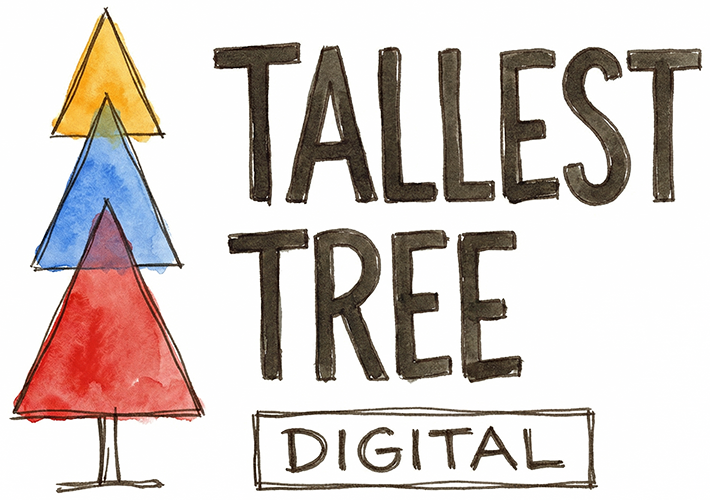Recently, an SEO expert recently contacted me about our product launch, raising his concerns about the value of structured data for rankings, a key feature of our TopicalBoost service.
While I appreciate a colleague reaching out to me with candid thoughts on what we’re producing, our repeated testing reveals that structured data does indeed make a significant difference for ranking, especially in Google News and Google Discover.
TopicalBoost allows users to implement structured data before any frontend links go live, so we’ve been able to see the effects of structured data alone on quite a few sites.
Let’s run through a couple quick case studies:
Case 1
This website has an Ahref’s Domain Rating (DR) of 70 and around 9,700 total pages.
In the three months prior to using TopicalBoost, their Search Console traffic showed:
- 83,900 organic search clicks
- 1,600 Google Discover clicks
Crawling
We implemented TopicalBoost on this site over the Thanksgiving holiday. By December 3rd, crawling on the site increased by about 70% and has stayed higher since:
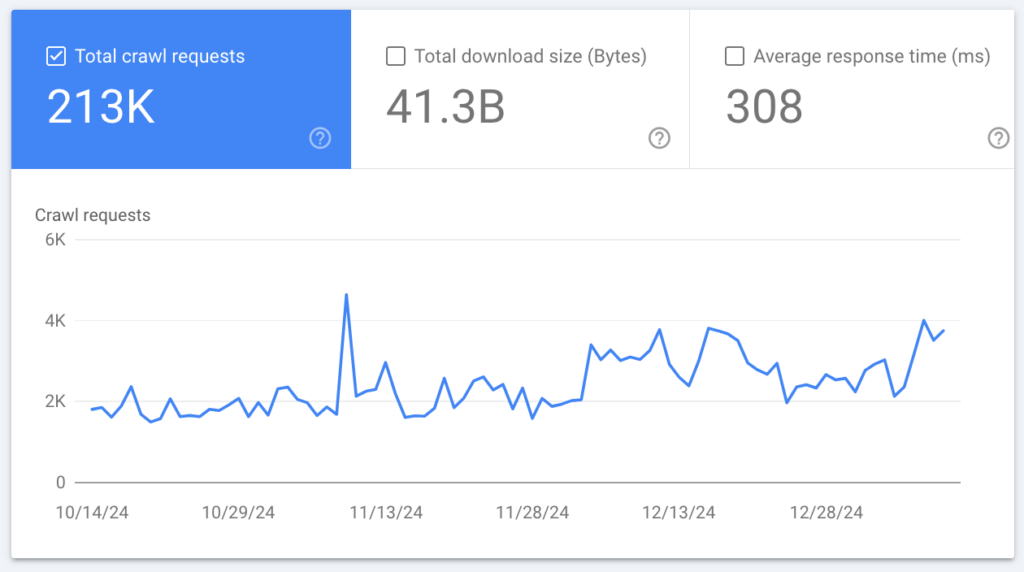
Google Discover
After a couple weeks, the site saw a spike in Google Discover traffic, followed by two more large spikes:

Zooming out, you can see this was their first significant Discover traffic since April of 2024:
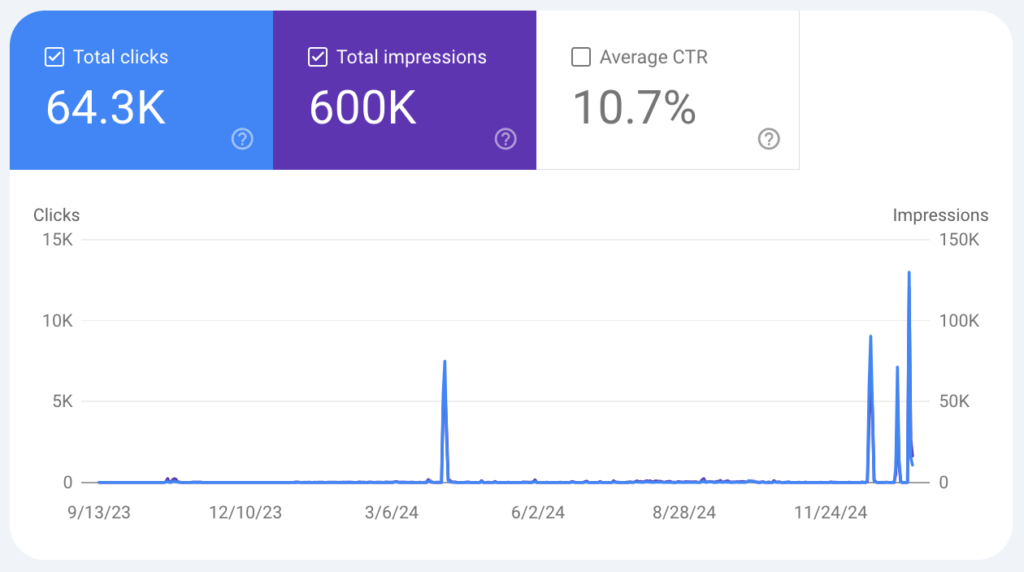
In the almost-90 days since implementing TopicalBoost, Google Search Console shows:
- 83,700 organic search clicks
- 47,200 Google Discover clicks (more than 28x the previous value)
So schema structured data appears to be doing something here! And this is what we typically see when a data-only implementation goes live. No real affect on organic search yet, but Discover loves this structured data.
Case 2
This site has an Ahref’s Domain Rating (DR) of 72 and about 38,000 total indexed pages.
Structured data generated by TopicalBoost went live on June 6, 2024. Here’s a Google Search Console chart comparing June 2024 through November 2024 with December 2023 through May of 2024:
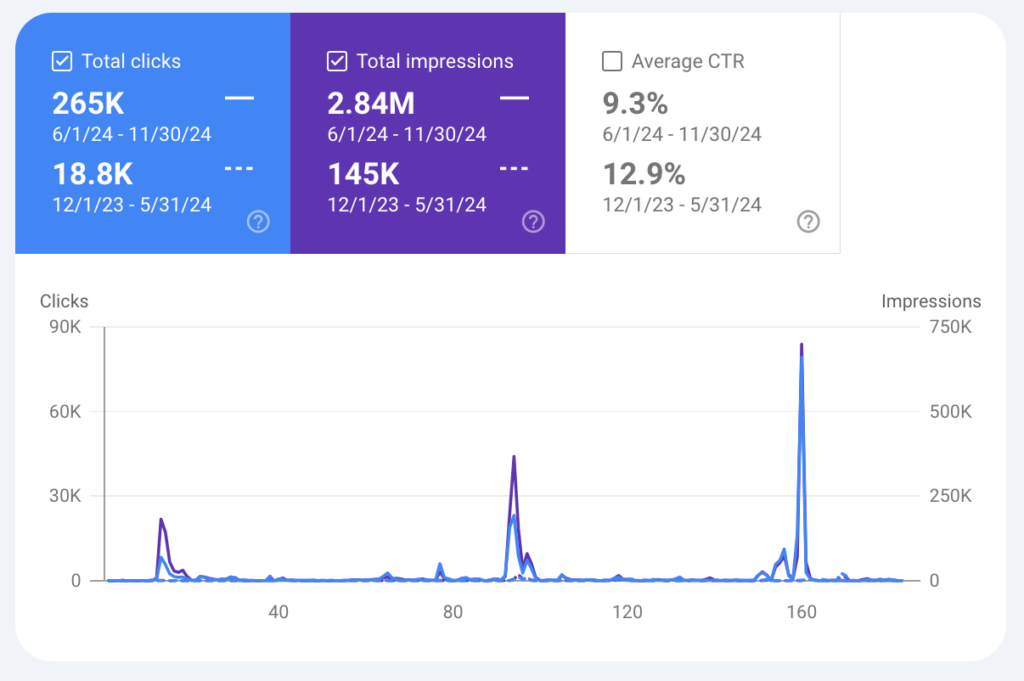
You can see that prior to using TopicalBoost, this site had some Discover Traffic, shortly after implementation, a single article received more than 20,000 clicks from Discover and overall Discover traffic has gone up by a little over 13x.
Google News jumped up too—going from nearly non-existent to 10 clicks over 6 months.
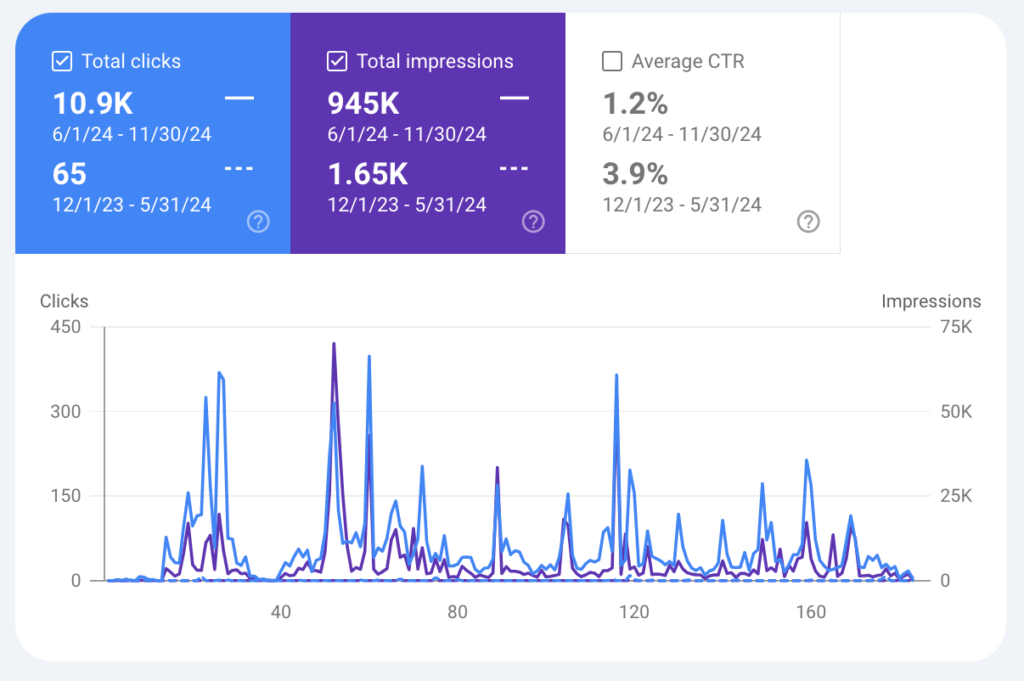
The frontend links and topic pages didn’t go live on this site until well into August, but structured data was all it took for Google Discover and Google News to start awarding traffic to this site.
What kind of structured data did this include?
Both of the sites above had pre-existing structured data. Both were already running Yoast SEO. Both had their articles properly set to NewsArticle and their research papers set as ScholarlyArticle. Both had breadcrumbs with categories and subcategories, authors, keywords, and all the boilerplate for the identification of the organization that we expect form the big brick of JSON-LD that Yoast creates.
So the only change we made to the structured data on these sites was adding entities discovered using TopicalBoost to their structured data. The results aren’t mind blowing, but both clients are happy with the results and TopicalBoost is generating more traffic than their ad spend and doing so in a way that we think will continue to grow.
Both sites are also seeing an increase in organic traffic year-over-year but this doesn’t produce an immediate spike in the graphs on Google Search Console.
The Ongoing Efficacy of Structured Data
First, I think it’s worth noting that the future of SEO and information retrieval/discovery is completely up in the air. AI and is spawning of new entrants into the search market for the first time in what feels like 20 years. Google is now facing competition not just from competing search engines, but via completely new modalities like chatbots. Google is even creating its own competition, like with my new favorite AI tool, Gemini 1.5 Pro with Deep Research.
But even if the future is uncertain, my clients need traffic now. I can’t simply throw my hands up and say “this has a limited shelf life, so we won’t do anything with it.” I have to do what I can to generate traffic now, and TopicalBoost does that.
I’m also simply not seeing evidence that structured data’s effect is declining with my clients. It may very well be losing its efficacy in some niches, but every time we roll out structured data with TopicalBoost for publishers who are writing about politics, policy, or news in general, we see a traffic increase. And all I can do is act on what works for my clients in the niche I understand best.
Moreover, every time we take things a step further and highlight some particular set of topics—we’ve made special pages for Supreme Court cases, missile defense systems, acts of Congress, prominent US cities—traffic around those topics goes up for the client site. Getting content organized and surfacing themes like these seems to be exactly the sort of thing that is going to reinforce your topical authority. And these would be useful things to do in the absence of SEO—our clients share positive feedback from real users that TopicalBoost is surfacing valuable content for them.
The Long-Term Future of Structured Data
Structured data and the knowledge graphs that aggregate that data, are far from dead. In fact, they could compensate for some of the biggest weaknesses in LLMs.
By combining large language models with knowledge graphs, we can create hybrid systems that produce responses that sound natural and are anchored in reality. AI companies like Valkyrie call this approach “contextual LLMs.” A group of researchers representing IBM Research and institutions such as Lübeck, Toulouse, and New Delhi’s BVICAM, argue that LLMs can leverage the structured framework of knowledge graphs to provide more accurate and contextual responses.
LLMs may also become capable of digesting more structure data. Microsoft Research Labs is investigating how to prompt LLMs to understand structured data as basic as tables. They’ve coined the term “Structural Understanding Capabilities” or “SUC” for short. Hopefully LLMs SUC more in the future so they suck less as producing accurate, non-hallucination results.
And the overall direction of the AI world right now is toward agents. As Aja Hammerly and Jason Davenport point out in a recent video on the Google Cloud Tech Youtube channel, no one really agrees what an agent is, but it seems to be an LLM plus some other thing. A lot of the other things mentioned are databases or other source of structured data.
In short, LLMs aren’t going to replace things like knowledge graphs or even link graphs like PageRank. Instead LLMs and other foundation models will become users of that data.
The Future of Topical Boost
I really appreciate a colleague trying to prevent me from going down a dead-end road. The message was a nice reminder that the SEO community is overwhelming positive and collaborative and folks really care about their fellow SEOs getting things right.
That said, I think my team and I are on the right path for our niche. While I acknowledge that the value of some SEO tactics may have turned to dust like a Thanos snap in other niches, I can’t give up on something that’s working both for the algorithms and for users in my niche.
The future of tech itself is also too uncertain to declare that currently vital technologies are on their way out. LLMs are still finding their footing—and their business models—and will change dramatically in the coming years. My hunch is that the future will involve a hybrid or “agentic” approach involving knowledge graphs and structured data, but take that with an A100-sized grain of silicon.
In the meantime, there are news cycles to win and solutions we know work now. My focus is going to stay there.
